In the ever-evolving landscape of business, staying ahead of the curve requires a dynamic approach that goes beyond traditional fixed-frame, static perspectives.
iluminr’s recent webinar Game On: A Winning Playbook for Risk and Compliance was a thought-provoking and insightful dialogue on how to integrate the realms of Compliance, Risk, and Resilience to create a more agile and responsive organizational operating framework in fast-paced change.
Let’s delve into the key takeaways from this enlightening session:

1. Integration for Dynamism
A recurring theme throughout the webinar was the importance of integrating Compliance, Risk, and Resilience. This integration facilitates a shift from static, point-in-time strategies to dynamic, real-time approaches. Such integration is pivotal in enabling organizations to adapt swiftly to challenges and changes.
2. Compliance as Enabler of Business
Traditionally seen as the enforcers, Compliance and Ethics teams are now assuming a new role as critical change enablers. Their role extends beyond enforcing rules to actively fostering positive transformations within the organization.
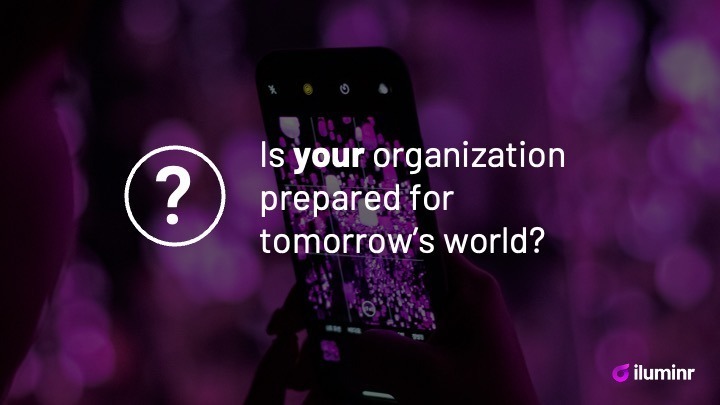
3. Learn Forward in Adversity
Organizations must learn from past events, but move away from the tendency to prepare for past events, shifting to better predicting and preparing for the next one.
4. Emphasize Value-Driven Decision-Making
The current business environment demands adaptive decision-making rooted in values over scripted response strategies. Aligning decisions with core values becomes paramount in steering organizations through complex situations. The just culture framework leveraged widely in healthcare is one mechanism to do after-action analysis in the context of ethical and values-driven decision-making strategies.
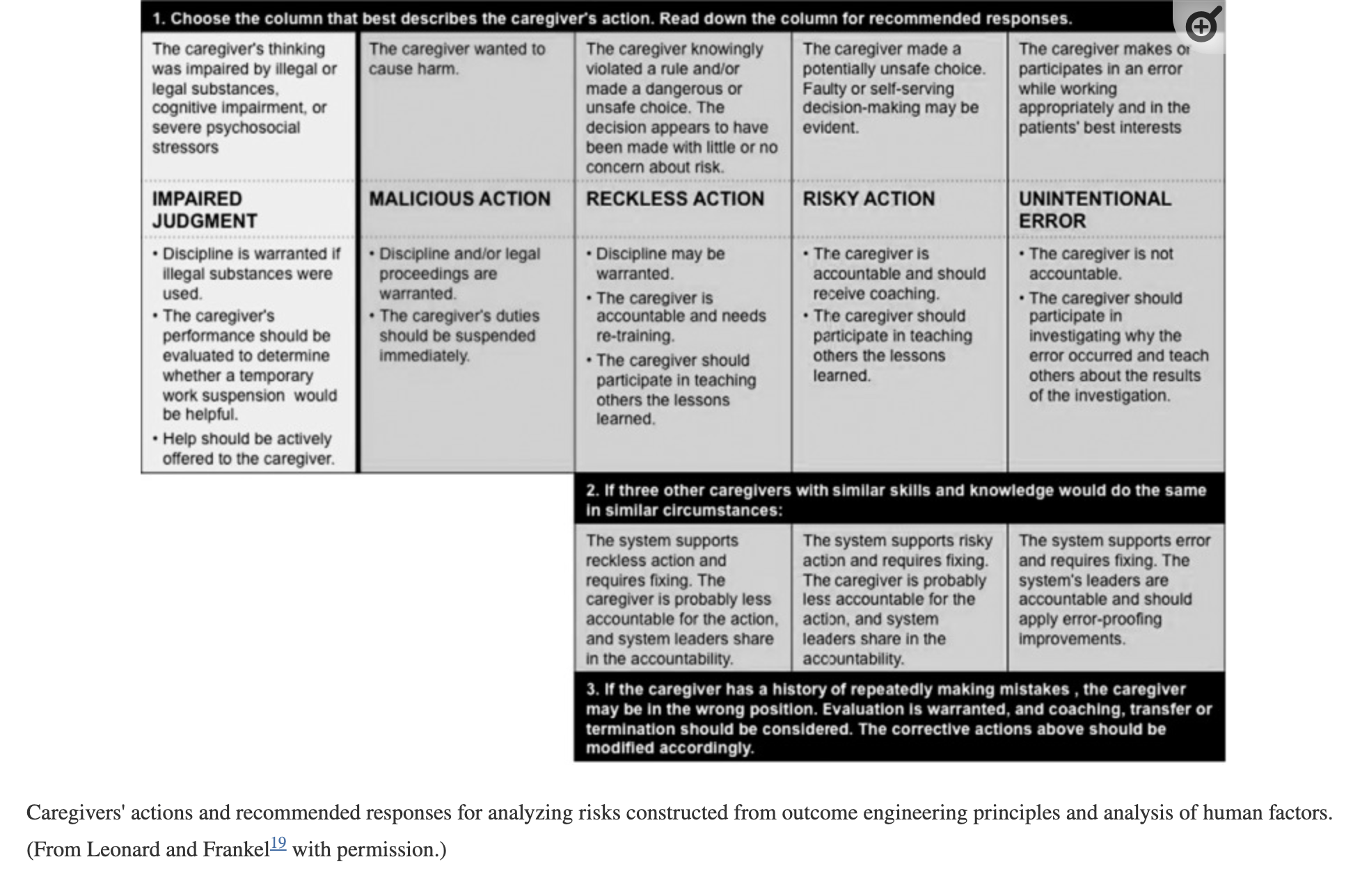
5. Fuse into Business as Usual
Risk and compliance strategies must be interwoven into day-to-day operations. Waiting for the perfect moment to implement strategies is a missed opportunity; instead, the intelligence of Risk and Compliance should seamlessly merge with regular business practices. In fast-paced change, speed wins. Designing small, game-based and immersive ways to integrate insights into business as usual without getting in the way of essential activity helps evolve culture over time.
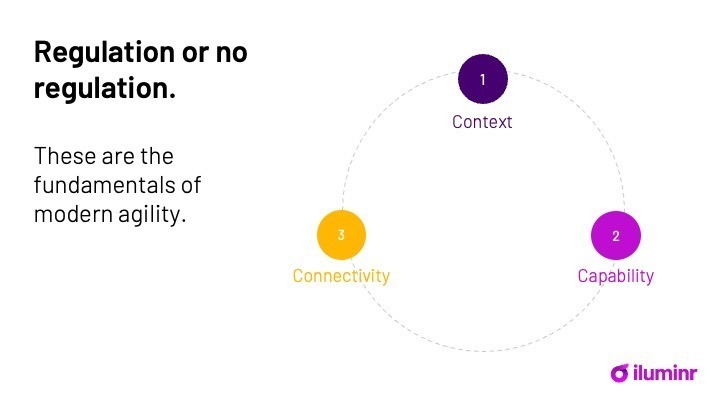
6. Combine Scenario and Response-Based Testing
Use a combination of scenario-based and response-based exercises when testing response strategies. Microsimulations and adaptive Playbooks can help teams practice leverage proven response strategies with an ever-evolving view into the situation as it evolves, supporting dynamic and informed decisions in-the-moment. This approach ensures that teams are well-prepared for a variety of situations. Putting your team “in the story” can help them experience the event as if it were happening, build the muscle memory for coordinated response, and reduce the chilling effect of turmoil in times of crisis.
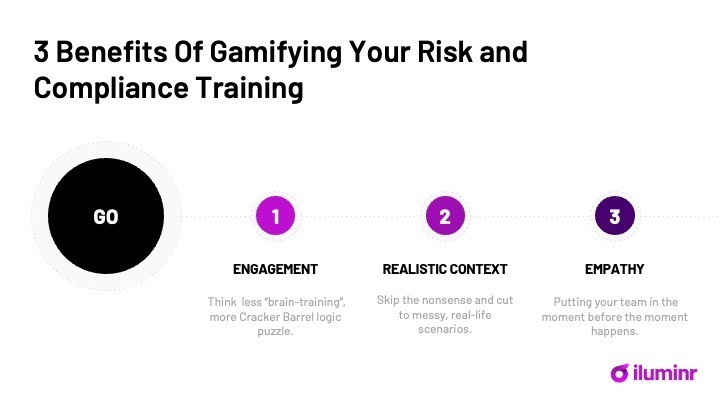
7. Build Collective Ownership
Risk, Audit, and Compliance are no longer isolated departments but have become integral to an organization’s strategy. From horizon scanning to response, these activities are a shared responsibility across the entire organization.
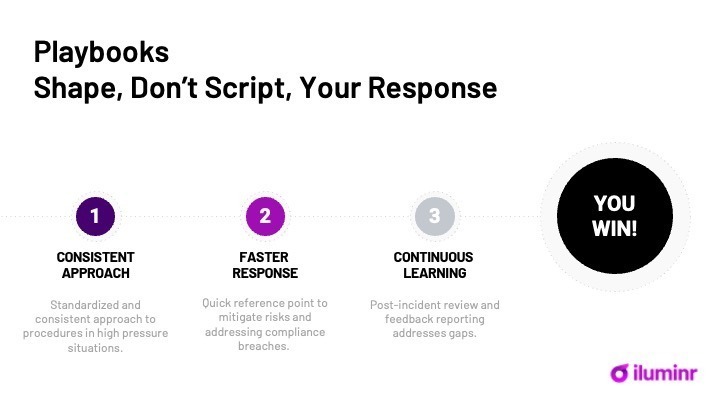
8. Design a Holistic Approach to Learning at Scale
Continuous learning is the cornerstone of success in shaping a risk- and compliance-savvy business. Integrating these aspects into the most senior levels of the organization empowers organizations to identify, detect, and respond proactively. By bringing together appetite and approach, organizations provide a more holistic view to the board and senior leadership teams. Leveraging risk, compliance, and audit insights into business planning and operational execution, particularly in light of the new regulatory and legal obligations of boards and senior leadership teams, gives a different level of transparency in ambiguity.

A Playbook for Success
Game On: A Winning Playbook for Risk and Compliance shed light on the transformation of risk and compliance functions from enforcement-oriented to strategic enablers. It emphasized the integration of compliance, risk, and resilience, the shift towards value-driven decision-making, and the importance of holistic approaches to continuous learning and its implications on strategy implementation.
As the world continues to evolve at a fast-clip, embracing these insights can provide organizations with a competitive edge and a more resilient future.
Author
Paula Fontana
VP, Global Marketing
iluminr















